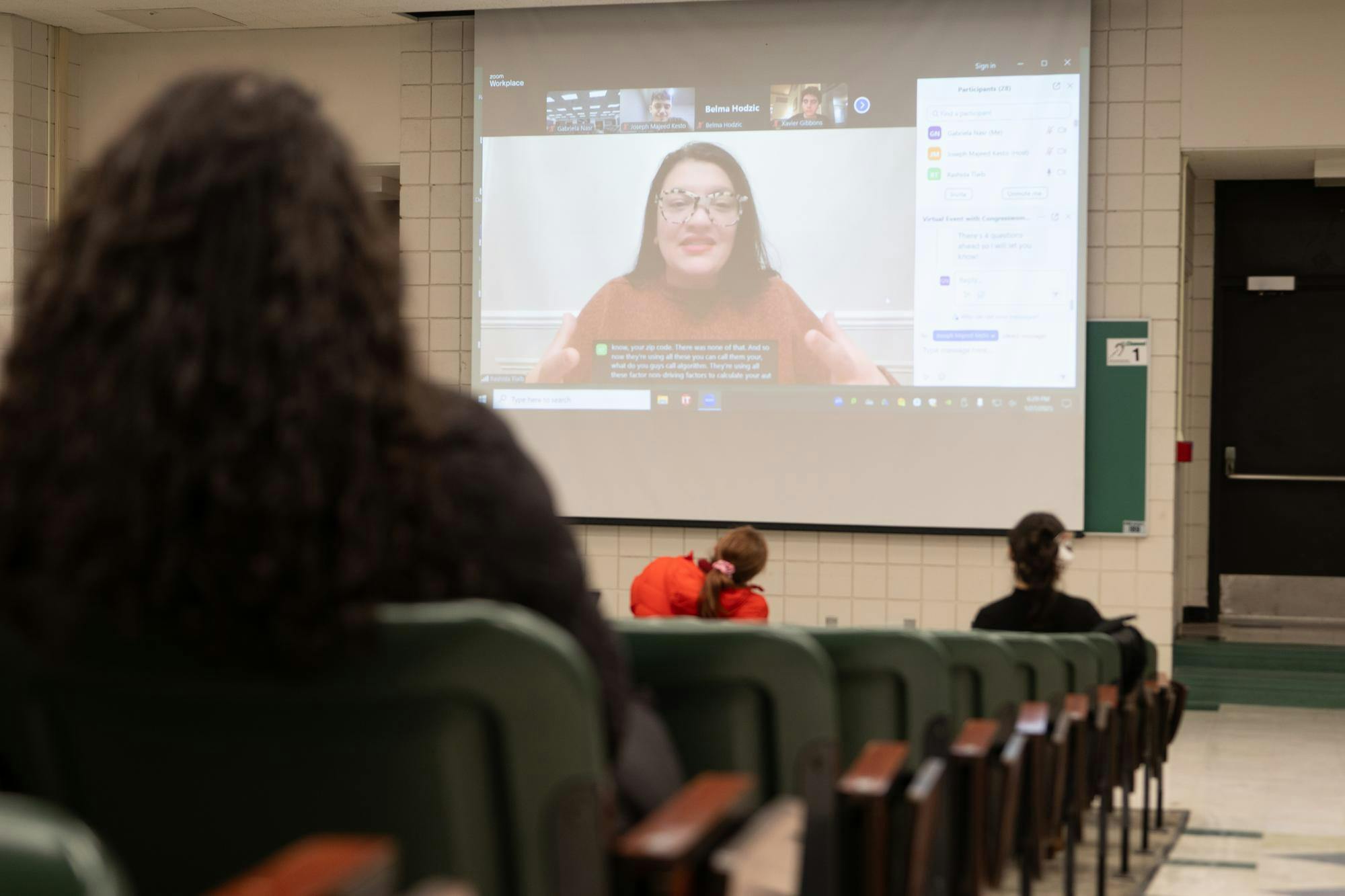Rep. Rashida Tlaib joined Michigan State University students via Zoom Thursday to discuss pressing issues, including the dismantling of diversity, equity and inclusion (DEI) initiatives under the Trump administration and the recent ceasefire in Gaza.
The event, organized by the Arab Cultural Society and March For Our Lives, offered both virtual and in-person attendance options. Many students opted for the in-person gathering, reflecting strong campus interest in the discussion.
“I think a lot of students came because they don’t feel secure and safe with the current state of the government, the economy and how our president is handling foreign relations,” said Jeneen Daoud, one of the event’s organizers. “Students who don’t feel safe living in America want answers directly from Congress, and I feel that Rashida is representing those who can’t speak for themselves.”
During the event, Tlaib answered several student-submitted questions, including concerns about recent threats to DEI programs. She emphasized the importance of such programs, saying that “lived experience matters.” Tlaib added that there are no laws in place right now forcing private sectors to disband their DEI.
She also spoke about her experiences in Congress as a Palestinian woman.
“The first time I wore my keffiyeh, people freaked out,” Tlaib said, reflecting on the challenges she has faced. She added that she has “felt more Palestinian than ever” since taking office and expressed disappointment in the lack of support from her Democratic colleagues.
Tlaib also addressed the recent ceasefire in Gaza, questioning its legitimacy.
“I don’t believe there is a ceasefire. If people are still being killed, how is it a ceasefire?” she said. “When there's still death and a lack of safety, that's not a ceasefire. The only way to get a ceasefire is an arms embargo.”
Tlaib, who grew up in Detroit, graduated from Wayne State University in 1998 before becoming the first Palestinian-American woman elected to Congress. Throughout the event, she emphasized the importance of activism, representation and policy change in addressing systemic issues. And, she advised the students on how to be effective with their activism.
“You’re not going to agree on strategy and approach, but one thing you can agree on is that it's wrong; we want to stop it," Tlaib said. "You may have different styles, but don’t attack each other on it.”
Tlaib said advocacy has also changed since she was a college student. When she was in college, she said, people told her not to say "free Palestine."
"It's inspiring to hear you guys saying 'free Palestine' with no fear," she told the students.
Support student media!
Please consider donating to The State News and help fund the future of journalism.
Discussion
Share and discuss “Rep. Rashida Tlaib talks policy, advocacy at virtual MSU student event ” on social media.







